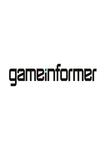
Game Informer - Chris Avellone Speaks
@GameInformer Chris talks about the reasons for his breakup with Obsidian, what its like working on games and lots more. Check it out.
Your work has largely defined an entire genre of games. What have been some of your major and minor influences over the years?
Me define a genre? God, I hope I haven't. It's only recently that I feel that I've been propagating a number of bad habits (unfun companions, reinforcing archaic dialogue systems, and being on titles where reactivity was simply a lot of special cased scenarios to test rather than true systematic reactivity). Part of this is due to the titles and engines themselves, but I needed to step back before I fell even further into a rut.
In terms of influences: The Hero System defined me with point-building freedom in characters. I don't care for class-based systems, since I feel classes are ultimately an obstacle to role-playing - Fallout taught me that. And speaking of Fallout and influences, Tim Cain and the Fallout crew taught me the best innovations don't have to be technological, you just have to approach a convention with a twist (stats affecting dialogue options). Without having played the Fallout series and designed for it (Fallout 2), I also think Planescape: Torment would have been a weaker product, but Fallout opened my eyes to what systems could do if you looked at them from the right perspective.
[...]
Your shift away from Obsidian came as a surprise to many. You were a founder, after all. Can you speak on how that came about and why?
I was indeed one of the founders. I'm still surprised I got the opportunity, and I'm grateful to Obsidian for it.
There's a few things to say here, none of it negative or scandalous or sensationlist, just food for thought. I want to make cool games of any size, any genre with cool people. Anything else (example: money, the best company car) is not important to me. I still think back fondly working with Subset Games, for example. Low ego, high humility, and I loved working on FTL. And I did it for free because I loved it so much. Guess what? I look back on it, and my soul is happy. Perfect.
Obsidian had cool people, but there were a lot of projects that Obsidian wouldn't consider or couldn't consider - both internally and externally. There were even ones that Obsidian didn't know it couldn't do, some of which I discovered to my surprise after my departure (hypothetically, something with "Old" and "Republic" in the title). Hey - now I know, but I never would have known otherwise.
My role was often a question mark, one that I attempted to get answered a few times. I've said this before in other interviews, but while creative director can give a lot of advice and thoughts, they may not have any decision making power at a company - they can't enforce a design philosophy or even tell any other employee what to do, even project directors and lead designers. I don't think this is unusual, but I don't know how the role is at other companies yet. It's certainly different at Larian, where the position has an incredible amount of authority, and it definitely shows on Divinity: Original Sin II.
[...]

